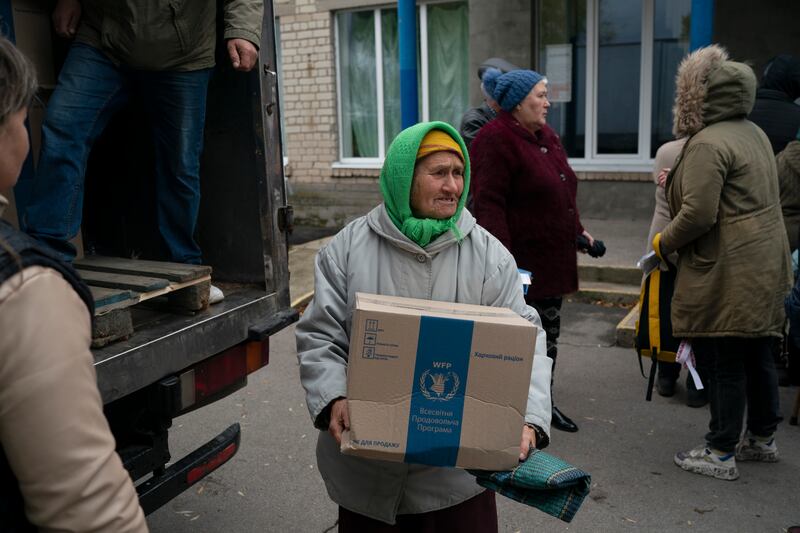“We get asked all the time: Is the war still happening?” — Marcee Foster, on the war in Ukraine becoming “white noise.”
In the pre-dawn hours of Feb. 24, 2022, Russia launched its full-scale invasion of Ukraine, sending missiles screaming into the night and bringing terror, torture, death and destruction to a sovereign nation.
I cried every day for the first month at the news stories and images coming out of the war zone. A year later, I still have trouble wrapping my head around the fact that a sovereign European nation is subject to ongoing atrocities in 2023. Rape as a weapon of war, torture, indiscriminate targeting of civilian targets, let alone the military assaults — it boggles my mind and breaks my heart.
The war tugged at other heartstrings too. In early March 2022, Lance and Marcee Foster took their family to Poland to do whatever they could to help the Ukrainian refugees streaming across the border. A year later, they’re still at it.
The early days of the war found them handing out suitcases to Ukrainians carrying their belongings in plastic bags, and driving deep into Ukraine on rescue missions. Today, their work looks different, as resettling refugees has become more systematized, but the Fosters are constantly busy. They are particularly fond of the Uniting for Ukraine program that allows a U.S. family — or neighborhood — to sponsor a Ukrainian family. They’ve had enough interest that their website — ReachHumanity.com — has an entire section on getting through the process of becoming a sponsor.
One thing that hasn’t changed is the focus of their work: mostly single moms. Even if there is a husband/father in Ukraine, the women still are raising their children as single mothers in a foreign country. In fact, some 90% of the adult refugees are women, and at least two-thirds of the country’s children are no longer in Ukraine. Current numbers say there are more than 8 million Ukrainians recorded in countries across Europe. In April 2022, the U.S. committed itself to welcoming 100,000 Ukrainians. So far, that number stands at 2,123.
Marcee told me “they are people just like us.” They were going to school, had jobs, got together for family parties, and then everything was turned upside down. The trauma that they are living with is intense. Some refugees, the Fosters told me, go back to Ukraine because they believe the situation has stabilized, or because they feel they have no other choice. But once they get there, they realize it’s much worse than they imagined and they can’t stay. Now a year on, many refugees are realizing that they need to make long-term plans that don’t involve returning to a country with crumbled buildings, unreliable infrastructure and a war that may drag on for many more months.
In the meantime, they fear that the plight of Ukrainians has turned to “white noise” humming along in the background somewhere. Fundraising for their nonprofit has dropped considerably, and theirs is not the only one.
In the first few days of the war, many large international nongovernmental organizations were on the ground, including the International Organization for Migration, UNICEF, the U.N. Refugee Agency, MSF, or Doctors Without Borders, World Central Kitchen, World Food Programme, many religious organizations, small grassroots international nongovernmental organizations and individuals who came to volunteer, including me and three of my friends who volunteered on the border between Poland and Ukraine.
Volunteers generally can’t stay for prolonged periods of time, and large organizations have their resources stretched by other disasters, but the needs for refugees don’t go away when the attention does.
LDS Charities has provided millions in financial support, tons of food and supplies, as well as presentations from professionals on grief, trauma and emotional challenges. The U.S. government has provided $1.9 billion for refugees, violence prevention, food, water and hygiene. World Central Kitchen has served 250 million meals. The International Organization for Migration has helped almost 3 million people. Doctors without Borders has hundreds of people on the ground and there are still many small and midsize organizations trying to make a difference.
Still, it’s easy to let something happening on the other side of the world turn into “white noise.” We need to make sure we don’t let it.


